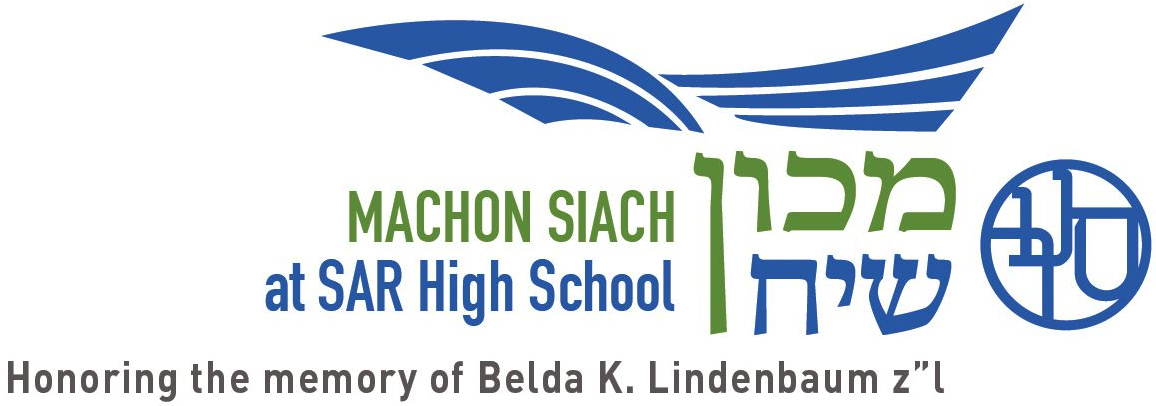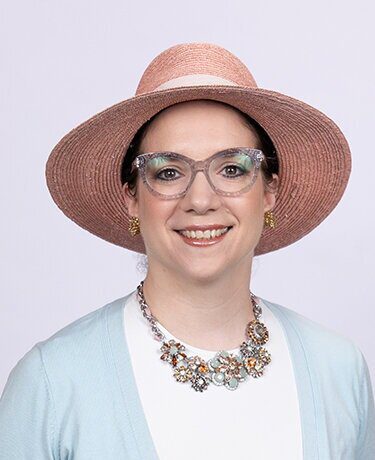Search the site:

Dr. Rivka Press Schwartz
Authored Work
Podcast Episodes
- It’s Deeper than College Admissions: A Conversation with Professor Daniel Markovits
-
American Jews have benefited greatly from access to higher education and the professional pathways it opened to them. Today, here is a great deal of concern about the culture and climate for Jews and Zionists on campus. But our students are still striving for acceptance into competitive universities, and we still see our students struggling with the endless demands of the college admissions process, one that seems to get more daunting with every year. Even as we reconsider whether our community should remain bought in to this system, is there any way to rethink how we define, demonstrate, and reward merit? Is it possible to enjoy the benefits of striving for excellence without all of the costs that our current system imposes? Professor Daniel Markovits of Yale Law School, author of The Meritocracy Trap: How America’s Foundational Myth Feeds Inequality, Dismantles the Middle Class, and Devours the Elite, speaks with Rabbi Tully Harcsztark and Dr. Rivka Press Schwartz about the nature of problem, how we got here, and what we might do about it. * This was recorded prior to October 7th, 2023.
- Election Season at SAR High School – A conversation with Rabbi Jonathan Kroll, Principal and Dr. Rivka Press Schwartz, Associate Principal
-
“On this special episode of the Grand Conversation, Rabbi Shmuel Hain hosts a discussion with Rabbi Jonathan Kroll and Dr. Rivka Press Schwartz about the upcoming presidential election. In this polarized moment, how has SAR High School tried to foster an environment where all members of our community, staff and students, can engage in political discussion with civility and respect?
Transcript Notes: Election Education: A Presidential election provides an opportunity for our students to explore important issues that affect the future of our country. While the political theater is often full of divisiveness we believe that our students can engage issues civilly and with deep respect for each other. A committee of staff members is coordinating educational programming for our students over the course of the next few months. During in-service we shared this draft of an affirmative set of principles that guide the way we as a community approach the election.”
- Ungrading: It Turns Out that Getting Rid of Grading Changes Everything (Well, A Lot)
-
SAR educators, Dr. Rivka Press Schwartz, Ms. Sarah Medved, and Ms. Rebecca Glassberg, who have experimented with different forms of ungrading–removing teachers’ grading power in the classroom and making students responsible for their own learning–talk about their experiences, what brought them to ungrading, and the anticipated and unanticipated outcomes.
- American Jews and Higher Education: Past is Prologue
-
“American Jews and Higher Education:
This series will explore the experience of American Jews in higher education, and consider some of the challenges raised in recent years by shifting campus culture and changes in law and policies around admissions, discrimination, and free speech on campus. As a school committed to the “”grand conversation between Torah and the world””, the majority of whose graduates continue on to secular college, how are we thinking about some of these issues, and what work do we need to do to prepare our graduates to engage them?Past is Prologue
In this episode, Rabbi Shmuel Hain interviews Dr. Rivka Press Schwartz about the history of Jews’ experiences on American college campuses, from the arrival of waves of Eastern European immigrants in the late 19th and early 20th century, through decades of exclusions and quotas through greater acceptance on campuses after World War II. How was higher education once seen as an essential component of American Jews’ “”making it””? And how has shifting campus culture, and shifting cultural and educational norms, in the last part of the 20th and early 21st century, affected that acceptance, and Jewish students’ comfort on campuses? “ - What the Numbers Tell Us, And What They Mean
-
In this episode, Dr. Rivka Press Schwartz speaks with two individuals who understand how to gather and use data to offer insight into schools’ successes and areas for improvement. Her first guest is Rabbi Joseph Beyda, principal of the Yeshivah of Flatbush Joel Braverman High School, who discusses his use of data to take the measure of his school community and assess the effectiveness of its programs. Her second guest is Jake Trumbo, project coordinator at Bach Harrison, who oversaw the three administrations of the survey gathering data about substance use among Modern Orthodox adolescents. He discusses the process of surveying, and what it looked like from his side.
This is the second episode in our new series: Substance Use among Modern Orthodox Adolescents: Identifying Problems, Implementing Solutions.
- A Conversation with Dalene Beaulieu
-
For the past six years, Machon Siach has been working to understand the scope of the substance use problem among Modern Orthodox adolescents, and to identify and implement evidence-based interventions to address that problem. This eventually led to the implementation of the Guiding Good Choices parenting program for all 9th grade parents. In this work, we have been guided by Dalene Beaulieu, an expert from the University of Washington’s Social Development Research Group. Listen as we explore what we learned from her, and what she learned about our community, over these years. This is the first episode in a new podcast series, hosted by Dr. Rivka Press Schwartz, called Substance Use among Modern Orthodox Adolescents: Identifying Problems, Implementing Solutions.
- Our Kids On Campus: Where Are We Now, Where Are We Going?
-
“This special episode of the Grand Conversation, recorded at the end of October, is devoted to important, complex, and ongoing issues being discussed in our community in this Post-October 7th world:
How can we meaningfully connect with and support our alumni on college campuses, and how are we helping parents and current SAR HS students navigate the college guidance process?
Our guest host is Dr. Rivka Press Schwartz, Associate Principal of SAR HS and Director of Research and Program Development at Machon Siach. Our two guests are leaders of SAR High School’s College Counseling team, Mr. Michael Courtney, Director of College Counseling at SAR HS and Ms. Michelle Biller-Levy, Associate Director of College Counseling at SAR HS and Director of Post-Graduate Initiatives, at Machon Siach.”
- Teaching American Zionism Through Civics Education
-
This edition of INSIDE THE CONVERSATION focuses on American Zionism and Israel education. It features an important essay by Rabbi Tully Harcsztark articulating an alternative approach to teaching American Zionist students the complexities of democratic governance in Israel through a comparison with American democracy and citizenship. The paper was written as part of a research group formed by Rabbi Harcsztark after an Encounter trip he took with other educators, academics, and rabbis. Professor Avi Helfand was part of that research group and he joined Rabbi Harcsztark for the podcast, guest hosted by Dr. Rivka Press Schwartz.
- Citizenship in the Modern Orthodox Community
-
This pre-election day edition of INSIDE THE CONVERSATION focuses on the critical work of our Citizenship research group. Following the 2016 election, Machon Siach convened a research group to take a step back and examine several core questions: What aspects of citizenship should be essential to American Modern Orthodox Jews? How do we educate our students towards broader civic engagement in addition to advocacy for parochial concerns? What impact does our commitment to religious Zionism and Medinat Yisrael have on our obligations as citizens?
Dr. Rivka Press Schwartz explores these questions and more in a thought provoking paper and in a pre-election podcast with Rabbi Shmuel Hain.


